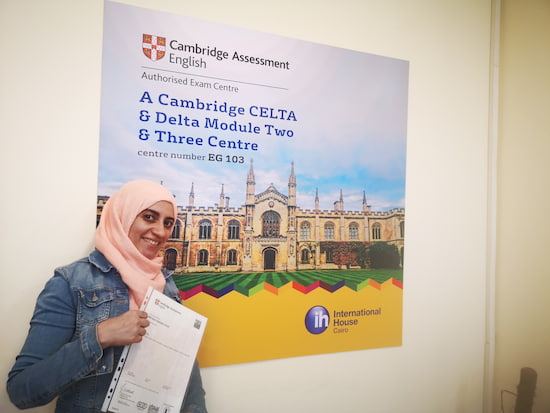العربية :يمكنك قراءة هذا المقال باللغة
Is just writing a CV is a guarantee to get your dream job? What is a Cover Letter?
How can you get the uniqueness between thousands of applicants for any job through it?
Here’s an early preview of what we’ll talk about:
Importance of the cover letter
Getting a great job is not easy, especially when you have a lot of competition in the job market.
Do you know how big this competition is?
Imagine all the students who studied the same qualifications that you got at your university, your school, or the similar training places.
Now multiply this number by the number of universities, schools, or the unique places in your city, this tells you that many young graduates are competing for the same jobs. And In the absence of an equal number of opportunities for those youth, the issue becomes more difficult.
With all this competition, what can you do to make yourself unique when so many candidates have the same qualifications you got?
With so many applicants, your employer or employment manager has limited time to review your CV.
Did you know?
It is possible that your resume will not be taken care of at all.
Unfortunately, many distinguished people get exposed to this situation.
If you can’t distinguish yourself between the vast number of applicants, you will lose the job, but how do you be extraordinary?
There is a way you can attract your employer to check your CV. Cover Letter contains detailed information about a person along with his CV but is rather equal to the importance of the CV. It is more reflectable for the style of its author and depicts its suitability for the job.
It is also preferred by 42% of employers, according to the University of Kent website, because it represents a reflection of your personality with the employer, who accordingly determines whether your CV is worth examining or not.
What are the factors that make a cover letter attractive to a recruiter?
Without a cover letter, your CV lacks essence.
Since the CV is usually brief, it does not show your style of writing and professionalism.
Not only that, but the letter allows you to draw the attention of the recruiting officer to parts of your CV that represent the extent of your qualifications and suitability for this job.
You can tell the recruiting officer why you are suitable for the job, rather than hoping that they can deduce that information from your CV … advise “do not expose yourself to this risk.”
You can also prove that you greatly understand the nature of the job, that you searched for the job, the company, the country you are applying to, and anything else related.
The cover letter is your opportunity to market to yourself and shows that you are best suited for this job.
Once you have finished writing your CV, it is time to write a Cover Letter.
What does an employer want to know?
Recruitment experts advise that the business letter should be brief and contain the following:
- Show how your studies/experiences/accomplishments relate to the job you would like to have.
- Highlight the skills and work experiences that the business owner possesses and needs.
- Show real excitement and enthusiasm for this job.
- List your most significant achievements in previous jobs.
- Tell the business owner why you are the best person for this job.
Your cover letter is your chance to convince your employer that you are well suited to the job, so it should demonstrate your strengths and enthusiasm for teaching English as a foreign language.
When applying for CELTA jobs, the cover letter is the first impression of you. The distinguished cover letter helps you to get yourself distinguished as an applicant and puts you in front of most other candidates.
The letter conveys your enthusiasm for a specific position and explains your qualifications for it.
It can also cover some gaps in your CV, such as lack of experience, shortage of education, or even periods of unemployment. It also provides an opportunity to allow your character to appear more and to get to know you better by potential employers.

Become an Accredited English Teacher with the CELTA.
Take the CELTA course with us. The CELTA is highly regarded by employers around the world as it is the most highly respected of its kind in the world.
What are the points that must be taken into account when writing a Cover Letter?
1. Start the letter with a simple introduction that includes why you wrote this letter, and where you saw the job posting.
This first paragraph is simple enough. You give the impression of the employer that you are interested in working for them.
Make sure to locate your position and let them know where you saw the job posting? And when will you be ready to start work?
2. Email must be professional.
Creating a professional email address is not difficult; just write your first and last name in the email. Avoid pseudonyms and strange symbols because these things give the impression of unprofessionalism and lack of seriousness in getting a job.
Additionally, if you are applying for a job via Facebook or another social network, be sure to use a professional profile picture.
Some hiring officials check the profiles for applicants’ social pages, so if anything negatively affects you in obtaining the job, change the privacy settings for these posts so that not everyone can access them.
3. Learn the right way to write a cover letter.
It may be familiar for you to start a Cover Letter by writing a quote, or using phrases like ‘salute and greet your esteemed enterprise’ or something similar. Still, Western-style letters tend to be very realistic.
So if you are applying for an international teaching position, you need to pay attention to this. Many websites offer American or British style letter writing examples so that you can take a look at these sites.
The letter shouldn’t exceed two pages, so don’t write a five-page letter because the recruiter won’t read it.
4. The address of the letter is to one entity.
You must send the letter to one specific entity. Employers must feel that you have spent the time and effort dedicating this letter to them.
Sending a public letter to more than one place may give a negative impression.
Make your letter give the impression that you spent time to send an email specifically to this organization; this will help you get more positive responses in this way.
Pro Tip: Many people apply to more than one job at the same time. In this case, be sure to make a ready-made template that contains the most necessary information about you.
It also includes blanks or “questions you set for yourself” that you write and customize based on each place’s specifications.
5. Check out grammar, spelling in the CV, and cover letter.
Remember that you are applying for a job as an English teacher. So check the language used, language errors, and correct rules; you should also set the punctuation marks precisely.
Pro Tip: Sometimes, it is advised to ask another person to take a look at the letter, as sometimes the eye gets used to seeing the same thing, so you cannot discover errors.
Also, there are some free programs on the Internet that help you write correct error-free text.
6. Give full details of your qualifications and experiences.
What the business owner wants to know is:
- Do you have the qualifications required for this job?
- What experience do you have?
- Where did you get your CELTA Certificate?
- And when was that?
Write down all the details of your degree and qualifications.
7. Don’t just focus on your qualifications.
Yes, qualifications are tremendous and required in all jobs, but hiring officials want to hear about your skills and expertise.
Remember, you mentioned your qualifications already in your CV, so you don’t need to mention them again unless you go into more detail.
You hold a CELTA certificate so you can talk about the skills you specifically acquired from the course,
- Do you have experience working with children?
- Experience in training or bidding?
- You should include Any job-related skill or experience.
8. Focus on your teaching experience.
The recruiter would like to know your experience of teaching English, so you should focus on this point.
If you do not have enough to write in your CV about language teaching, you can mention your previous professional roles without going deeper as long as they are not related to teaching.
For example, if your previous job was a lawyer. Avoid writing your legal jobs, the papers you have published, and the conferences you attended.
Still, you can write your experience in the legal language that is relevant to the English language.
A summary of what you should include in the business letter:
Your CELTA qualification.
- Details of your previous teaching positions and what your role was.
- What ages, levels, and class sizes do you have experience with?
- What types of English language have you taught – for example General English, Business English?
- What textbook did you use?
- Why do you want to work in this country
- Why do you want to work in this school/organization
- When to be ready.
You must include any additional features that you obtained through the CELTA certificate in the cover letter.
These features give priority to recruitment and make you different from others, including:
- practical application of information inside the course, you will have work experience to apply what you have learned professionally.
- Tutor Professional feedback will help you focus on the essential points and avoid the mistakes of the others.
- The course will help you learn about the motivations of people to learn English, which makes you a suitable person to teach different classes.
- You will have experience with effective learning methods.
- Experience with the necessary skills required to teach in the lecturer.
- You have the ability to choose appropriate curricula and accredited references.
- The CELTA certificate will be valid with you all the time because it has no expiry time.

Apply for the upcoming CELTA course now!
This certificate is the most sought after by employers offering English language teaching jobs abroad or in prestigious organizations.





